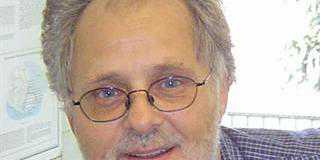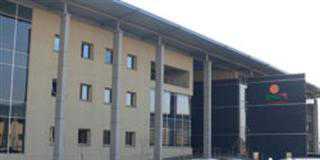This follows the stake they bought in Paarl-based Colors Fruit, South Africa’s second-largest fruit exporter. Farmsecure Group CEO and founder Jerome Yazbek tells Robyn Joubert more about the company that’s quietly building up an impressive portfolio.
Why and when did you start Farmsecure?
In 2004, when the global commodity prices crashed, farmers in the Bethlehem region asked me as a business consultant to investigate whether non-subsidised farming in South Africa could be sustainable while still producing a profit for the farmer. My career background had been in the insurance industry and the development of small and medium enterprises, and I identified a number of areas that would increase farmers’ capacity to farm sustainably and profitably. The key areas were agricultural practices; risk mitigation tools; suitable working capital arrangements; and adequate hedging/protection of the price of farm produce. The Farmsecure we know today was built and developed with and by various specialists and partners in these fields.
What are your long-term plans?
It’s clearly stated in Farmsecure’s vision: “To be a meaningful contributor to securing the world’s food supply, by creating profitable and sustainable farming operations, whose produce is managed from soil to shelf.” This won’t be easy task and requires a holistic and fully integrated approach to the entire agricultural value chain over time.Everything that the group engages with is driven by this statement, one step at a time.
With the recent deals with Colors and Yara, it’s clear Farmsecure has substantial funds at their disposal. How did you achieve this?
Farmsecure has sufficient funds to achieve its goals. As part of our strategic planning, we’ve developed long-standing partnerships with renowned local and international investors and financial institutions who share the same vision of securing a sustainable agricultural future. Alongside these institutions, we’ve developed a number of finance products and facilities, which have allowed Farmsecure to expand where necessary into the agricultural market.
Is it fair to say Farmsecure has an aggressive expansion policy?
No, we certainly don’t think so. The Farmsecure Group as a whole in South Africa does not hold a majority share of the market in any given sector or region it’s involved in. Farmsecure does not intend to control any given market, but to be integrated throughout the entire agricultural value chain. We believe we can’t make a substantial contribution to the market and the farmer without an integrated approach. With this and the Farmsecure vision in mind, the group is currently expanding into different areas of the value chain.
What sectors will you be looking at expanding into next?
We’ll be expanding into all crops grown in South Africa, the livestock sector in its totality, supply chain management and trading. We also plan to expand into the African and international arenas in a well-controlled manner.
You’ve identified livestock as having huge potential. Can you tell us more?
South Africa is a net importer of livestock products. Some Southern African Development Community (SADC) countries have EU export quotas that are hopelessly underutilised, so large-scale growth is possible in these areas. African leaders outside of South Africa have made it clear food security is one of the continent’s main priorities and large tracts of land have been made available for farming. In some cases, such as large piggeries, cattle feedlots and dairies, the overall profitability and sustainability can be improved by converting the manure into biogas and electricity. We have what’s probably Africa’s leading engineering team working on this and the first eight projects are very close to approval.
How have the low grain prices affected your farmers and have you implemented any plans to alleviate their financial distress?
Low grain prices do, of course, affect them, but we believe we have mitigated the effect to a degree. We help increase output through precision farming techniques; reduce costs through variable application of inputs based on specific soil types/potential; remove marginal high-risk soil; and ensure guaranteed minimum prices by hedging at the right times. We have arguably the biggest independent corps of agricultural advisors in South Africa.
Do you have any plans for value adding in the grain industry?
We want to form strong partnerships with farmers and integrate farming enterprises into the whole value chain of supply management and secondary industry. We still believe in our original four pillars – sound agronomic and precision farming practices, proper risk mitigation techniques, sensible structuring of working capital and proper management and hedging of the prices of the produce.
What is your strategy in the fruit industry?
The fruit industry is largely orientated towards exports, with the farmer receiving as little as 30% of final price realised. The balance is expended on the entire chain of packaging, transport and export costs. Efficiency here is crucial to farmers’ profits. Our partnership with Colors illustrates how we can add value to the chain. It starts on the farm with horticultural programmes to improve export quality percentages, increasing total output, ensuring bulk (cash) buying of packaging, transport and so on, thereby saving on costs. Forex risk is mitigated using hedging programmes. We believe all this improves profitability for all stake holders. We’ve started to expand into areas where fruit processors have extensive carry costs, such as concentrate and wine production and storage. We want to partner with business-minded farmers to increase their profitability and sustainability.
Farmsecure promotes the development of more organic soil solutions. Will the Yara deal help you achieve this?
We have a holistic view of plant nutrition, as we have of agriculture as a whole. With the Yara businesses – which will be renamed Kynoch Fertilizer – and the small, niche fertiliser businesses we own, we’ll be in a position to offer a complete range of fertiliser products, tailored to what makes sense for the farmer, the soil and the crop.
Will the Yara deal allow you to offer your farmers a cheaper price for inputs?
It’s not so simple. Kynoch has been one of South Africa’s leading fertiliser businesses for over 100 years. As a focused business within the Farmsecure family, it has to be sustainable and profitable in its own right. But there’s a bigger picture for us as a group. With the acquisition of a large inputs business, we become significant buyers of crop inputs in hard currencies. Many agricultural outputs are already directly priced in hard currencies (such as fruit), or indirectly to some extent (such as the grain markets, which are influenced by the US commodities markets). With a significant position throughout the value chain, this will allow us to do things in terms of funding the total chain, which could create significant value. And, yes, our farmers will benefit.Contact Farmsecure Holdings on 021 974 1900. |fw













